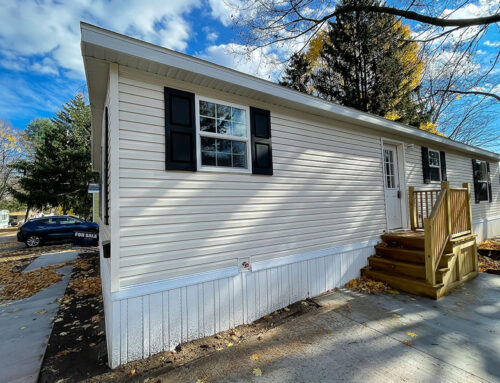In my spare time, when I can find some that is, cooking helps me cope with stressful days at the office. For some reason, it’s very therapeutic to hole up in the kitchen, grab a drink, and create dishes that always seemed so complicated. No doubt, as my family will attest, I’ve produced some duds. I didn’t have the right spices, cooking vessels or patience, and botched meals sneakily got fed to the dog beneath the dining table. Yet, even our labradoodle has turned his nose up on occasion. However, I’m proud to say that experience has taught me to nail certain creations. I’ve made the necessary adjustments and learned from my mistakes.
When my male friends, most of whom can’t toast bread, ask how I do it, my answer is simple: Get the right ingredients and follow the darn recipe. My trial and error method of cooking has closely paralleled my real estate investing pursuits. Learning how to flip houses in New York State, my initial efforts involved a scattershot approach that sometimes left my balance sheet in the red. I relied on my instincts, but intuition wasn’t enough at first. I finally made a good business of flipping houses when I found some experienced investors who offered me the same advice I give to the aspiring chefs in my life: Follow the formula, and things usually work out.
The Recipe for Learning How to Flip Houses in NY
There’s a reason successful house flippers got where they are. They adopt a prescribed way of buying, renovating, and selling homes. Rarely do they deviate from what works for them and their projected return on investment (ROI). Doing the same thing over and over again, and achieving positive results is the Real Estate Investing 101. Stick to the following game plan and you’ll witness your flips bear fruit.
- Finding Distressed Homes. Flipping homes typically requires a substantial cash outlay. I find off-market homes for a deep discount in areas with low median home values, and that’s a good place to start. Cities in the Empire State such as Bridgeport and Elmira Heights, where median values sit well below $100,000, offer many opportunities to purchase a home inexpensively. For beginners or seasoned investors, minimizing property acquisition costs quite simply bodes well for your ROI, especially if you run into unexpected repairs. I have occasionally uncovered good deals at foreclosure auctions but communicating effectively with distressed sellers at the pre-foreclosure stage often yields lower price points and less red tape.
- Finding Good Neighborhoods. Before purchasing a below-market value home, I take a step back and survey a few targeted neighborhoods. I always ask the same questions. Are there ample employment opportunities in the town? Is the home close to grocery stores, restaurants, public transportation, and above-average schools? Is the neighborhood safe? I put myself in the mindset of a potential buyer who might ask me the same questions. If the plusses outnumber the minuses, then I’m ready to dig a little deeper into comps and rehab estimates. As I venture out to find distressed property in NYC, for instance, Bushwick in Brooklyn and Riverdale in the Bronx satisfy most all of my purchase criteria.
- Finding the Money. I’ve built up a fair amount of liquid funds throughout my five decades. But I’m loathed to allocate those dollars toward anything but retirement funding, emergency expenses, or a nice vacation now and then. At the start of my real estate investing career, I could have freed up enough cash to spend on the first hard asset in my portfolio. Rather than dig into my own coffers, however, I used hard money lenders to finance my flips. These private entities understand the buy, rehab, and sell niche. Hard money folks offer timely funding not only for the purchase price of a distressed home but also for the repairs that inevitably accompany such an acquisition.
- Finding Reliable Contractors. I’m not terribly handy. I can handle demolition, painting, and landscaping but I need to hire plumbers, carpenters, and electricians. Finding reliable contractors can be tough. Quality referrals can be had from local real estate clubs or fellow investors. Since a quick sale is the goal of flipping homes, I can’t wait around for tradesmen to show up or reappear after spending a day or two on the job. Once I develop a solid relationship with these professionals, I forge loyalties to ensure that my ROI doesn’t suffer from a project being extended far beyond my set deadline for listing.
- Finding Buyers. There’s nothing worse than completing a rehab on schedule and have that house sit on the market for months past my targeted sales date. Interest accrues, utility bills continue to mount, and my projected ROI takes a hit. To avoid this scenario, I carefully assess the value and build quality of similarly located homes and take care not to upgrade beyond those standards. And then comes the price point. I study the comps and ask a reasonable price that meets my forecasted profit margin. Setting exorbitant list prices forces homes to spend a long time on the block, conveying to potential buyers that something might be amiss with the property. When I follow these rules, buyers come to my door.
Making a Good Business of Flipping NY Houses
My hobbies of cooking and golfing give me pure enjoyment, so flying by the seat of my pants never seems like a big deal. Investing my hard-earned money in real estate is a business, however. Although I initially relied on my own intuition, takes a good chunk of change to invest in—and that’s a matter I didn’t want to leave to chance. Finding the opportunity to become an independently owned and operated HomeVestors® franchisee transformed me from a self-reliant novice into a remarkably professional participant. In the Empire State, and all across the nation, HomeVestors® Development Agents have helped franchisees like me close on more than 140,000 deals since 1996.
Contact HomeVestors® today to find out how to cook up some investment gains of your own.
Each franchise office is independently owned and operated.
Contact
"*" indicates required fields





